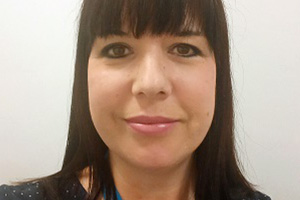Rachel Cleaton talks about Biomedical Science
Rachel is the Pathology Practice Education Coordinator (Midlands and East) at University Hospitals Coventry & Warwickshire NHS Trust.
- Programme
- Healthcare Science
- Role
- Healthcare Science
Why did you choose job/a career in healthcare science?
I am a HCPC registered Biomedical Scientist, I have worked within the Microbiology Clinical Laboratory in Pathology for 18 years, I developed within my career and became Pathology Network Training and Recruitment Strategy Lead and I am currently on a secondment post to a new exciting regional role as Pathology Practice Education Coordinator.
I chose a career in Biomedical Science because it is fascinating to learn how things work at the molecular level, particularly how the human body works –its remarkable. We don’t have all the answers and so need to continuously update our skills and knowledge according to new discoveries in technology , we never stop learning.
What does a typical day involve?
Within my laboratory role I always had a passion for training new members of our team. Biomedical Scientists need to be HCPC registered to practice and so must first complete laboratory training and gather evidence to demonstrate they meet the requirements. Within my current role Im still coordinating training but on a larger scale, I now liaise with Department Managers and coordinate training teams, monitoring delivery, driving improvements and I have the opportunity to explore and develop new training pathways to ensure we train the next generation of Biomedical Scientists/Healthcare Scientists with the knowledge and skills we need to provide a high quality service for our patients.
How does your job impact on patient health?
In my previous role as a Biomedical Scientist within Microbiology I would examine patient samples sent for investigation for the detection of harmful microorganisms which could be causing infection; we would also look for signs of infection such as the presence of White Blood Cells.
Biomedical Scientists and are supported by a skilled team of Biomedical Assistants and report their findings to Clinical Scientists and Medical consultants who advise the clinical teams so that effect monitoring and treatment can be given to patients.
In my current role, my work still impacts patients as I coordinate deliver of high quality training, ensuring we have enough qualified scientists to deliver our Pathology services across a number of Hospital sites.
What would you say to someone thinking about a career in healthcare science?
I would encourage individuals to explore the vast array of Healthcare Science careers available in the NHS right now; these are extremely interesting and rewarding careers where you are completing highly specialist, essential work every day. With continuous innovation in science and technology this bring variety and continuous learning.
